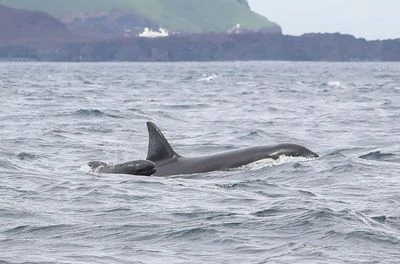
Unlikely Allies? Orcas Adopt Baby Pilot Whales, Baffling Scientists
In a surprising turn of events in the icy waters of Iceland, orcas, often known as "killer whales", have been observed adopting baby pilot whales. This behavior, documented in a recent study published in Ecology and Evolution, has left marine biologists both intrigued and puzzled. Are these apex predators displaying an unexpectedly nurturing side, or is there a more complex explanation behind these interspecies interactions?
The initial discovery occurred in 2022 when researchers from the Icelandic Orca Project spotted a pilot whale calf traveling with an orca pod. Chérine Baumgartner, a researcher involved in the study, initially mistook the calf for a malformed orca. However, further observations revealed the surprising truth: it was a baby pilot whale, integrated into the orca group.
This wasn't an isolated incident. Throughout 2022 and 2023, similar sightings occurred, prompting Baumgartner and her team to investigate the reasons behind this unusual phenomenon. Several theories have emerged, ranging from predatory behavior to playful interaction, and even the possibility of genuine caregiving.
One striking detail from the observations is the "echelon position," where the baby pilot whale swam slightly behind and beside an adult female orca. This positioning is typically seen between whale mothers and their calves. Researchers also witnessed instances of orcas nudging the pilot whale calf and, on one occasion, even lifting it out of the water and onto their backs.

While playful and protective behavior seems to indicate nurturing, the researchers acknowledge the inherent predatory nature of orcas making it difficult to completely rule out a darker motive. As Baumgartner told Scientific American, "It could be [that the orcas] encountered the pilot whale opportunistically, and some individuals played with the whale, and others tried to nurture it."
The researchers are also investigating how these interactions came about in the first place. Filipa Samarra, another researcher, suggested that changes in climate may have led pilot whales, who typically follow mackerel in warmer waters, into orca territory.
Adding another layer of complexity, another study mentioned in one of the source articles points to a case in 2021 of a similar behavior being attributed to alloparental care. Given that each observation happened within a limited period, researchers have called for further insight for clarification.
Until further research sheds more light on this unusual relationship, the mystery of the adopting orcas remains. What do you think is driving this behavior? Leave your thoughts and theories in the comments below!